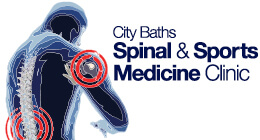Emily mcinerney
Parkinson’s disease (PD) is a neurological condition affecting movement, but it doesn’t have to stop you from living an active life.
Physiotherapy can be a powerful tool in your Parkinson’s management plan, helping you move with greater confidence.

Understanding Parkinson's
Parkinson’s presents a range of symptoms that vary from person to person. Some of the most common include:
- Slowness of movements
- Muscle stiffness/involuntary tightening of muscles
- Tremor
- Balance changes or difficulties
- Changes in speech, swallowing and walking.
- Sleep changes and/or hallucinations and vivid dreams.
- Emotional changes, including possible anxiety and depression.
There are over 50 symptoms of PD. Some of these involve movement and speech, and can be obvious to others, but many symptoms of Parkinson’s are ‘non-motor’ or ‘invisible’ symptoms.
The term “Parkinson’s Iceberg” has been used to depict its symptoms and highlight that the visible symptoms are just the ‘tip of the iceberg’. Below the surface, the more than 20 invisible symptoms impact the everyday lives of those living with Parkinson’s.

These symptoms are caused by a decline in dopamine production in the brain and associated changes in the way messages from the brain to the body (and vice versa) are delivered. Physiotherapy can’t reverse this decline, but it can help to slow functional changes involved with PD.
Physio for Parkinson's: The Benefits
Physiotherapist prescribed exercises, and/or exercise classes led by a physiotherapist, can be a great way to keep anyone moving, but for someone with Parkinson’s, can be especially beneficial for maintaining mobility and strength.
Our physiotherapists can create personalised exercise programs to target your specific needs.
Physio can assist with:
- Improved Mobility and Balance: Targeted exercises can enhance strength, flexibility, and coordination, making daily activities like walking and getting dressed easier and safer.
- Pain Management: Physiotherapy techniques like massage and stretching can alleviate muscle stiffness and pain associated with Parkinson’s.
- Maintaining Independence: By improving your ability to move and manage daily tasks, physiotherapy empowers you to stay independent for longer.
- Enhanced Mental Well-being: Exercise is a well-known mood booster, and physiotherapy programmes can help combat depression and anxiety (common non-motor symptoms of Parkinson’s).
- Social Interaction: Group physiotherapy or exercise classes provide a safe, supportive environment to connect with others.
Taking Control of your Parkinson's
Physiotherapy is a crucial part of a multidisciplinary approach to managing Parkinson’s.
Working alongside your neurologist and other healthcare professionals, a physiotherapist can create a programme that helps you move with greater confidence and maintain your quality of life.

Parkinson's Awareness Month
April is Parkinson’s Awareness Month, a time to raise awareness of this condition and the resources available to those living with it. Physiotherapy is a key component of Parkinson’s management, and at City Baths Spinal and Sports Medicine Clinic, we are committed to helping you move your best.
Participants in City Baths Physio’s “Clinical Exercise” program, who are attending as part of their Parkinson’s management, have reported both physical and mental benefits, including maintenance of balance and strength and improved psychological wellbeing.

In addition to physiotherapy, find numerous resources that can help you on your Parkinson’s journey via Fight Parkinson’s Victoria.
Let’s work together to help you stay active and live a fulfilling life with Parkinson’s. Contact us today to schedule a consultation with one of our experienced physiotherapists.
Sources
https://www.fightparkinsons.org.au/parkinsons-and-you/what-causes-parkinsons https://www.fightparkinsons.org.au/parkinsons-and-you/symptoms https://www.fightparkinsons.org.au/parkinsons-and-you/treatments-and-professional-support https://www.fightparkinsons.org.au/information-for-you/publications/#fight-parkinsons-services-and-supports

